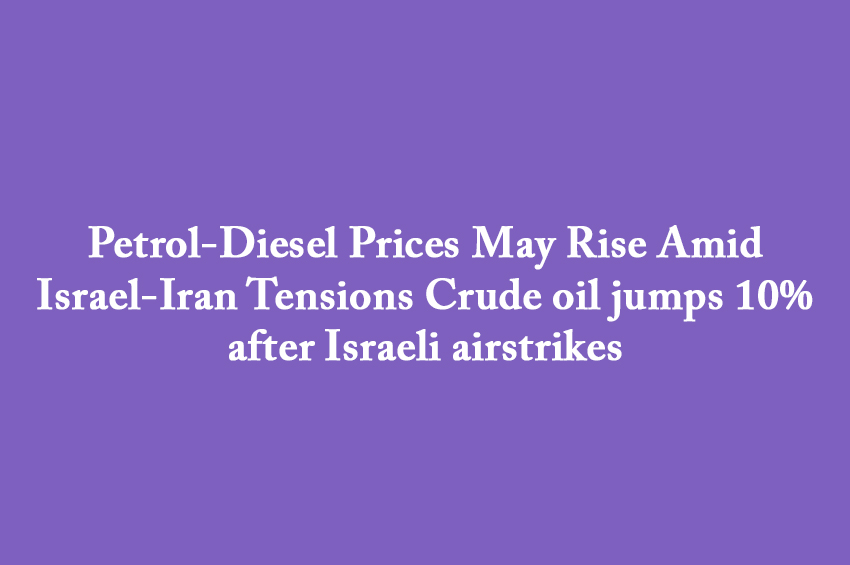Winning Bizness Economic Desk
Mumbai. On June 12, Israel launched airstrikes targeting Iran’s nuclear and ballistic missile programs, leading to an immediate jump in global oil prices. Iran, the world’s third-largest oil producer, lies strategically near the Strait of Hormuz — a key global oil transit route. If Iran retaliates by blocking this passage, it could disrupt up to 20% of the world’s oil supply. This geographical and geopolitical link has created fresh uncertainty in global energy markets.
Brent and WTI Surge on Global Concerns
Following news of the attack, Brent crude prices surged by 10%, crossing \$78 per barrel, while the U.S.-based West Texas Intermediate (WTI) also climbed past \$74. Energy analysts predict that prices may rise further if tensions escalate or persist. The potential disruption in supply chains, especially from the Gulf region, is fueling market speculation and increasing oil futures’ volatility.
Impact on Fuel Prices and Inflation
If crude oil prices remain elevated for an extended period, oil marketing companies may be forced to increase retail prices of petrol and diesel. This will have a cascading effect—transport costs would go up, which would in turn raise the prices of essential goods including food. A prolonged conflict could aggravate inflation, squeezing household budgets and impacting overall consumer spending in countries like India that heavily rely on oil imports.
Stock Markets React to Oil Shock
Global equity markets responded negatively to the oil price surge. The Indian stock market declined over 1%, reflecting investor worries over inflation and higher corporate input costs. Japan’s Nikkei 225 dropped by 1.3%, while Hong Kong’s Hang Seng Index fell 0.7%. Although the U.S. market was closed at the time of the incident, futures trading hinted at a potential fall of over 1% in major American indices.
Why Israel Launched the Attack
Israeli Prime Minister Benjamin Netanyahu described the strike as a "pre-emptive" measure against growing threats from Iran's nuclear and missile programs. Reports suggest that several high-ranking Iranian officials were killed, including IRGC commander Hossein Salami and prominent nuclear scientists Mohammad Mehdi Tehranchi and Fereydoun Abbasi. Israel claims such actions are vital to prevent Iran from becoming a nuclear-armed state.
Global Response and Future Outlook
The U.S. has distanced itself from the airstrikes, stating it does not support a war in the region. Countries like Saudi Arabia have contingency plans, including pipeline networks bypassing the Strait of Hormuz, to ensure oil flow continues. Iran has already retaliated by launching over 100 drones and may move to block the strait, which could push oil prices beyond \$100. Analysts believe the situation could significantly influence global markets depending on whether the conflict de-escalates or worsens.
Summary Points:
- Israeli airstrikes on Iranian nuclear sites triggered a 10% jump in crude oil prices.
- Iran's strategic location near Strait of Hormuz raises fears of global oil supply disruption.
- Petrol and diesel prices in India may rise if crude remains expensive, adding to inflation.
- Stock markets across Asia dropped sharply in response to oil price volatility.
- Israel claimed the attack was a defensive move to halt Iran’s nuclear development.
- Key Iranian military and nuclear officials reportedly killed in the strike.
- Global economies may face short-term instability depending on Iran’s next move.


